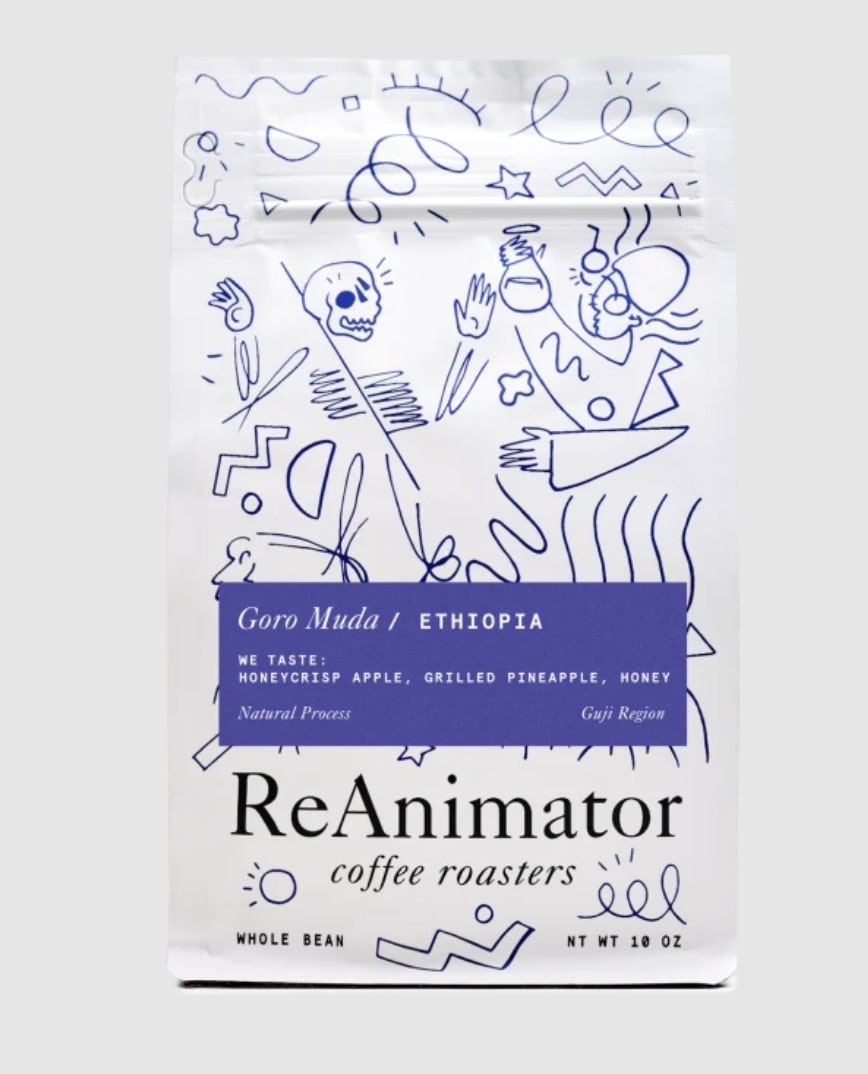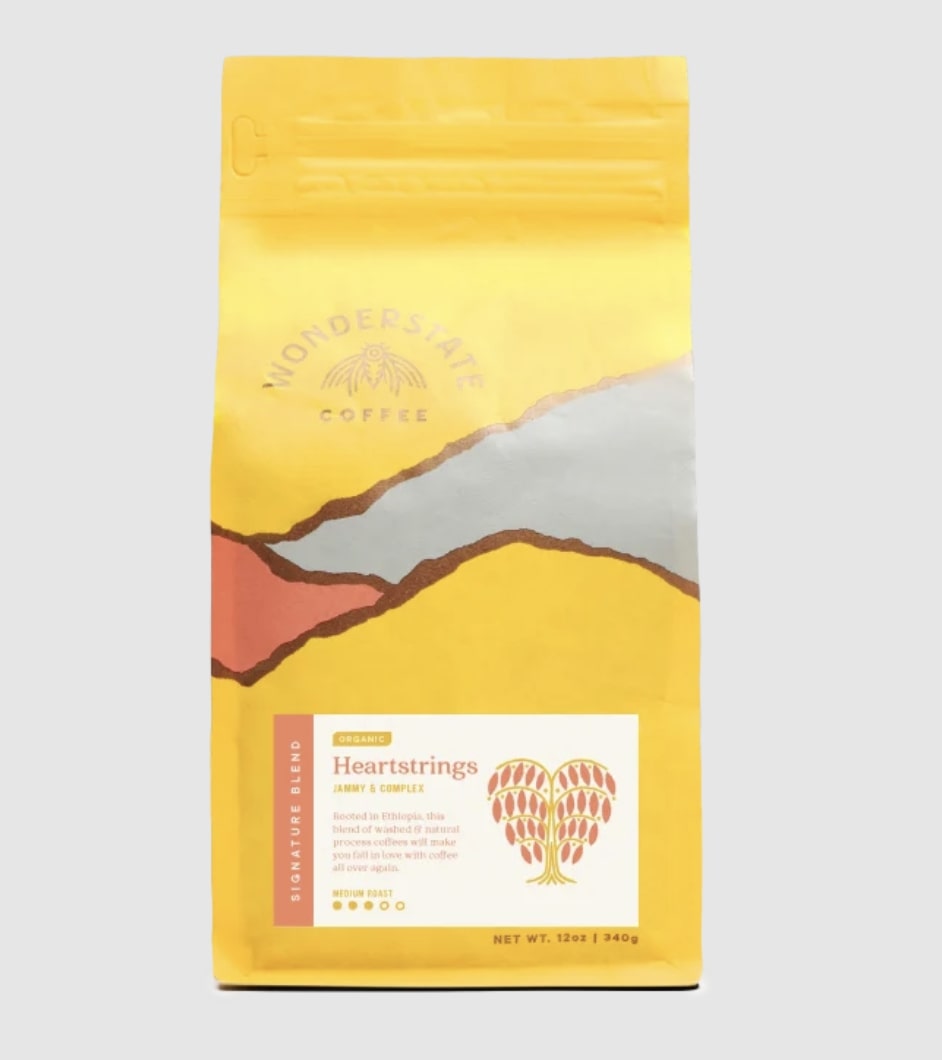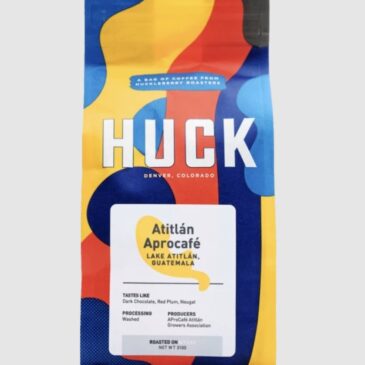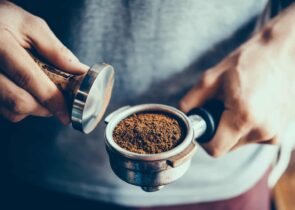Time to say goodbye to tins of bland Folgers coffee because this new era of coffee drinkers demands delicious, exceptional, premium flavors in our coffee roasts.
As the world becomes increasingly interested in specialty coffee, roasters have taken note and have placed more and more emphasis on the underlying flavor notes of their specialty coffee.
Of the more popular notes, fruity coffee roasts are becoming evermore popular in coffee drinks for their flavorful taste.
If you’re someone who prefers fruity notes in their coffee but doesn’t know where to buy it, look no further. We’ve got the best fruity coffee here for you.
At a Glance: Best Fruity Coffee

Quick Summary: Best Fruity Coffee
 | Our Top Pick Verve – The Sermon Espresso |
| Check on Amazon → |
 | Red Rooster - Ethiopia Worka Sakaro Anaerobic Natural |
| Check Price → |
 | ReAnimator - Ethiopia Goro Muda |
| Check Price → |
 | Panther - Mejor |
| Check Price → |
 | Wonderstate - Heartstrings |
| Check Price → |
 | Huckleberry -GUATEMALA ATITLÁN APROCAFÉ |
| Check Price → |
Verve – The Sermon Espresso
This light, fruity espresso roast is a favorite amongst Verve fans. Based in the sleepy surf town of Santa Cruz, California, Verve has swept the coffee world off its feet as it has gained immense popularity throughout the years.
Perhaps a big reason why the Sermon Espresso blend tastes so excellent is that it’s only sourced from the best villages in Brazil, Colombia, and Ethiopia.
Its rich flavor provides a well-balanced taste with sweetness and acidity. If you like an emphasis on fruit flavor with a bold body and a less bitter taste, Sermon Blend is the coffee for you.
Always fresh, never stale, Verve delivers an exceptional flavor and bold, fruity coffee taste that packs a serious punch in your morning coffee.
Red Rooster – Ethiopia Worka Sakaro Anaerobic Natural

Red Rooster - Ethiopia Worka Sakaro Anaerobic Natural
Sweet, tropical, and wildly fruity, this coffee is bursting with notes of pineapple, fresh berries, and funky candy sweetness.
Grown and processed by the Worka Sakaro Washing Station in the heart of Gedeb, this light roast is a delicious blend of many fruity flavor notes.
Founded in 2010, Red Rooster is a small, family-owned café and roastery that is dedicated to equity within its workforce and only working with sustainable coffee growers like Worka Sakaro.
Red Roosters Worka blend is a long-time favorite with customers. With a Coffee Review rating of 95, this smooth and sweet roast gives you tasting notes of pineapple, fresh berries, and brown sugar with a rich chocolatey finish.
ReAnimator – Ethiopia Goro Muda

ReAnimator - Ethiopia Goro Muda
This elegant natural process from Ethiopia has us tasting juicy pineapple in addition to a crisp, fruity acidity and notes of fresh-cut flowers.
Located in Philadelphia, PA, ReAnimator is a small roastery that takes pride in roasting seasonally. This means their single origins are only available for mere weeks at a time before the next single origin hits the shelves.
If you’re able to get your hands on their single origin Ethiopian Goro Muda roast, you have to give it a shot.
Being processed in a natural/dry process and then roasted lightly, ReAnimator has extracted the fruity notes of this bean selection, pulling out flavors of pineapple, crisp apple, and floral.
Panther – Mejor

Panther - Mejor
Fruity and sweet, with a juicy note of cherry bolstered by a deep, nutty sweetness.
Using a mix of cherries from around the Cauca region of Columbia, this blend goes through a washed process and is then roasted to a medium roast to produce a sweet and balanced cup of coffee.
When brewed on a pour-over for maximum flavor extraction, you’ll notice that this complex blend has notes of cherry and citrus that are grounded by a milk chocolate and nutty flavor.
The result is balanced and delicious!
Panther is a Miami-based roaster that is committed to providing equitable wages to small coffee farmers in South America and beyond.
By buying smaller batches of high-quality cherries and blending them with other similar batches from other farmers, Panther is able to maintain their commitment to equity, while making delicious and affordable high-profile blends from some of the best coffee farmers around.
Wonderstate – Heartstrings

Wonderstate - Heartstrings
This balanced blend marries bushels of berry and dried fruit sweetness with comforting warm baking spices and a kiss of cocoa.
Based in Viroqua, MI, Heartstrings truly is a groundbreaking roastery.
Being one of the only solar-powered roasteries in the US, Heartstring heavily invests in its relationship with the farmers they use to source its beans. And this shows in their quality roasts.
Coming from regions across Ethiopia and undergoing a washed process, Heartstrings is a medium roast that gives a complex but delicious flavor profile.
You’ll pick up on lots of berry notes along with a hint of dried fruits. This is rounded out by a slight cocoa and spice moment at the end.
Heartstrings is very enjoyable when brewed in a pour-over method or with an AeroPress, extracting the full range of flavor notes.
Huckleberry -GUATEMALA ATITLÁN APROCAFÉ

Huckleberry -GUATEMALA ATITLÁN APROCAFÉ
Sweet and bright, this coffee has us tasting juicy plum, fresh-squeezed lemon, and rich, nougaty chocolate on the finish.
Although fruity tones tend to be sweet and balanced, Huckleberry has gone in a slightly different direction with their single origin Atitlan Aprocafe roast.
Working closely with the AProCafé Aprocafé Growers Association, Huckleberry has created mutually beneficial relationships with farmers, where, together, they explore new ways of growing and processing coffee cherries to create unique and one-of-a-kind roasts.
With dark chocolate undertones, Atitlan Aprocafe has overwhelming flavors of plum and citrus that make a delicious sweet and tart combo that is truly unforgettable.
This roast is only available seasonally, but that’s what ensures that it is finished to perfection.
What Makes Coffee “Fruity”
What exactly makes coffee taste fruity? Do they roast the beans with actual fruit? Do they spray on the flavoring after?
On the contrary, fruit flavoring has nothing to do with the oils. It has to do with how the beans are grown and the roasting process afterward.
It’s taken us a while to get here, though.
Roasters began flavoring coffee beans as far back as the 1960s when coffee rose in popularity. Back then, the roasters would spray beans with artificial flavoring oil to make their coffee taste better than the beans’ actual, natural quality.
Toasters would spray the beans with raspberry sprays, cinnamon sprays, or any other flavoring they thought would be a top seller.
As you might imagine, the end product presented an unsavory flavor that was pretty horrible. We’ve come a long way in terms of coffee quality, and we’ve harnessed the ability to flavor coffee through other, natural techniques.
The first method has to do with soil composition. It’s no secret that soil composition impacts flavoring and acidity.
Take Colombian coffees; the soil in Columbia tends to have higher concentrations of sulfur compounds, which gives off an earthier aroma, while the ground in places like Ethiopia has higher concentrations of monoterpenes, which produce more citrus-like aromas.
Just as soil composition influences acidity, it also impacts flavor. When coffee trees grow in nutrient-rich soil, they produce more flavorful coffee than in nutrient-poor soil.
The more nutrients a coffee plant can get, the healthier it becomes, and the more flavor the coffee cherries give to the beans within.
That’s why it’s so essential to purchase beans from certified boutique sellers, as the flavor quality begins with the quality of the soil.
The climate also impacts what sort of flavors the coffee beans will have. According to studies, cooler temperatures allow the coffee to ripen more slowly, which increases sweetness to bring out a more fruity flavor.
Strangely enough, altitude also impacts the number of fruity notes found in coffee. In fact, altitude plays one of the most significant roles in the coffee taste and directly affects aroma, body, acidity, flavor, and preference.
When coffee is grown in higher altitudes, they typically have higher levels of acidity, and that acidic taste often leaves a fruity aftertaste in the bean.
When the coffee fruit is picked also affects its sweetness. Coffee fruit picked at its peak time using the tried-and-true hand-picking method will provide more fruit flavor than unripe cherries.
The length of the processing times after harvest also affects the bean. That fruity flavor soaks into the bean as it waits to be pulled out, dried, and roasted.
Another significant element is, of course, the roasting process. When coffees are roasted to a medium or light roast, those fruity-tasting flavors are pulled out.
Best Fruity Coffee
Out of all the roasts, we have to say that Wake The Hell Up! produces an excellent roast of coffee.
If you’re looking for pure fruit flavors, this is the roast for you. Their deeply intoxicating, lush blueberry will put you under a coffee spell and will have you coming back cup after cup.
However, all of the brands listed are phenomenal roasts. If you enjoy premium coffee with bold fruity notes, try a cup from each of these roasters to see which is the right roast for you.
FAQ
Here are the answers to some frequently asked questions about fruity coffee.
What Does Fruity Flavor Mean?
Fruity-flavored coffee means that it resembles the taste of fruit. While coffee will always primarily taste like coffee, sometimes the aftertaste can have a sweet, fruity flavor.
Many people also report experiencing these delicate flavors through smell. Try taking a couple of deep breaths before you sip your coffee and see if you can identify the subtle flavors in your cup.
Is My Coffee Sour or Fruity?
If your coffee is tasting sour, then that means there was a problem during the roasting process. Usually, this means the beans are under-roasted.
However, if you purchase your beans from a quality roaster (instead of roasting them yourself), the chances are that your beans are okay, and you may just need to adjust how you prepare your coffee.
If you want to really bring out the fruity and citrus flavors, try your coffee black and use an Aeropress for more flavor extraction.
How Does Coffee Taste Like Fruit?
When coffee says that it tastes like fruit, it was grown in the correct soil, weather, and altitude conditions to extract a fruity flavor.
Final Thoughts
Whether you like coffee with heavy citrus, sweet berries, or bold combinations of common fruit flavors, these five roasters pack a punch with their fruity coffee blends.
Make sure to try all five roasts to figure out which one you like the best!
Happy Caffeinating!








